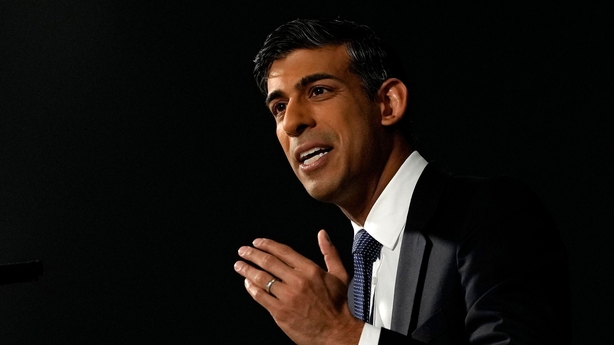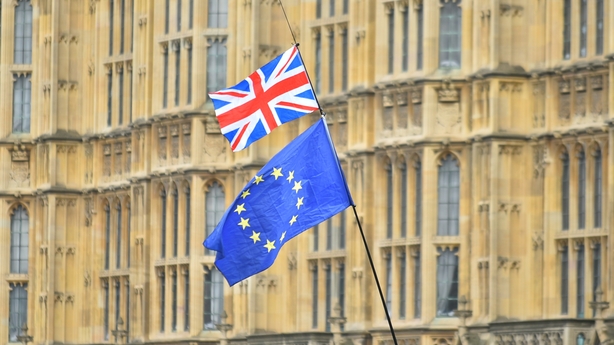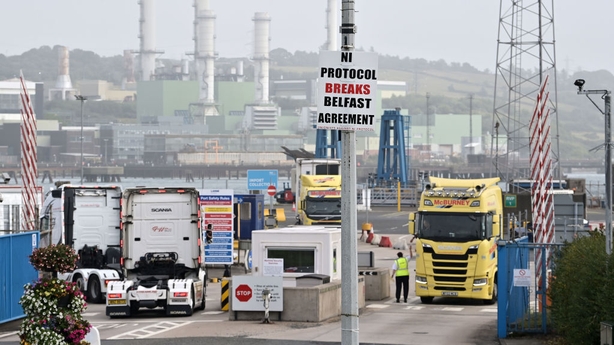Boris Johnson is going back to his original job – journalism – now that he has resigned as an MP. His first column with the Daily Mail appeared on Saturday.
Mr Johnson was fired from his first job in journalism with The Times for making up a quote. Now he has resigned as MP because he was found to have lied.
Things have come full circle in more ways than one.
As things stand, the Privileges Committee’s damning report is expected to be ‘nodded through’ the House of Commons tomorrow. When the motion to endorse the report is put to the house, it is expected to be passed by vocal assent, possibly even without a debate.
There are not expected to be any objections raised that would force a vote because Mr Johnson has asked his supporters not to do so.

This is widely seen as an acknowledgement that a vote would be futile and would starkly reveal Mr Johnson’s lack of support among the Conservative parliamentary party.
In the immediate aftermath of the report’s publication only seven Tory MPs were reported to be planning to vote against it – out of a total of 352.
The motion is a one-line whip which means Conservative MPs are not even required to even be present. For those worried about the reaction of constituency members who still back Mr Johnson, the easiest thing would be to find an excuse to be somewhere else.
The big question is whether Prime Minister Rishi Sunak will be there. If he did personally attend it would be a powerful statement that he is not afraid of provoking the hard right wing of his party. However it is reported that he has a scheduled meeting with the Swedish Prime Minister.
The motion on the privileges report also follows Mr Sunak’s unprecedented public slap down of Mr Johnson last Monday. Mr Johnson had reacted with outrage when two of his allies did not get peerages.
Mr Sunak replied “tough”.

It was a revealing moment because it had been a constant refrain of Mr Sunak’s premiership that he was operating in Mr Johnson’s shadow.
It was true that Mr Sunak was trying to assuage the hard right who feared he was soft on Brexit or not a real Conservative when it came to the economy. Mr Johnson was seen as the one who could rally backbenchers on those issues.
However, the vote to pass the Windsor Agreement on the Northern Ireland Protocol last March is increasingly looking like a pivotal moment. The fact that a majority of Tory MPs backed it, showed the declining influence of the Tory hard right which is largely represented by the ERG group.
At the height of its power during the Brexit debates in 2018, the ERG could get up to 80 MPs out to vote.
That was enough to wipe out the Conservative majority and threaten to destabilise the government. Critics said the ERG had taken control of the country.
However, the numbers of paid-up members had already dwindled to 12 MPs last year – down by two thirds in two years.
But there were rumbles of a powerful rebellion with the Conservative party on the Windsor Agreement which had been brokered by Mr Sunak with the EU.
Mr Johnson broke his silence as a former prime minister to say he was voting against it. As the vote drew near, a succession of senior figures came out against it – including former prime minister Liz Truss and former home secretary Priti Patel.

In the end only 22 Tory MPs voted against it. This meant that the government was able to pass the agreement without relying on the votes of the opposition.
The power of the ERG was shown to have fallen below critical mass. And Boris Johnson’s influence was also shown to have waned. There was not going to be a leadership heave anytime soon.
Reports of parties in Downing St and in surrounding pubs that night after the vote were not denied.
It would be ironic that the Northern Ireland Protocol proved to be the fence where Mr Johnson’s leadership ambitions fell. The issue of Northern Ireland post-Brexit had showed his most notorious faults, such as a lack of attention to detail and duplicity.
His hastily put together and ill thought-out vision of Brexit had not foreseen the problems caused by the Northern Ireland border at all.
And during the Brexit debates Mr Johnson had been arguing that Northern Ireland could leave the Single Market without causing a hard border in Ireland.
As a former Mayor of London, he pointed out that there was no hard border between the boroughs of Camden and Westminster as license plate recognition technology was enough to enforce the congestion charge.
He then signed a deal on the Northern Ireland Protocol with no intention of honouring it.

In fact, the recently published biography of Mr Johnson by Anthony Seldon contains eyewitness accounts to back up the belief that he only supported Brexit in the referendum in the belief that it would not be passed.
And that he believed it would position him nicely for a future leadership contest by winning favour with the likes of the ERG.
When Brexit was in fact passed, he was reported to be shocked. He told colleagues “Oh s**t, we’ve got no plan. We haven’t thought about it. I didn’t think it would happen. Holy c**p, what will we do?”
It remains to be seen what happens next for the premiership of Rishi Sunak now that his biggest rival is gone, at least for a time. Mr Sunak’s popularity within the party took a hit because of the loss of 1,000 seats in the local elections. And he is facing possible stagnation in the economy.
But so far, the public is not showing much sympathy for Mr Johnson. A Savanta opinion poll showed 66% believe he did deliberately mislead the House of Commons while only 19% believe he did not, and the rest were ‘Don’t Knows’.
And for Mr Sunak to win just one of the three by-elections caused by the resignation of Mr Johnson and his two allies would seem like a victory.
A crucial issue in Mr Johnson’s constituency of Uxbridge and South Ruislip will be the extension of the Ultra Low Emission Zone (ULEZ) to Greater London which imposes daily levies for older makes of cars.

There has been a public backlash against the measure which was brought in by Labour Mayor Sadiq Khan and Mr Johnson had been one of the Conservative MPs campaigning against it.
It is even being tipped as a major issue for next year’s election for Mayor of London and there is speculation that Mr Johnson will stand again for that office, this time as an Independent.
Another question is whether Mr Johnson’s downfall – and the failure of Brexit – will mean more demand for fact-based assertions and respect for the findings of established experts in public debate.
The ULEZ controversy would suggest not.
A total of 36 air pollution scientists have written to Mr Sunak urging himself to distance himself from Tory MPs who have, they say, been engaged in science denial over the issue and sharing platforms with conspiracy theorists.
Mr Sunak faces a difficult decision if he tries to rein in his candidate over an issue that might give him a much-needed by-election win.
Meanwhile, Mr Johnson’s first article in the Daily Mail was a full page about the benefits of weight loss drugs in general and one named brand in particular.
He thinks the NHS should pay pharmaceutical companies for their use.
